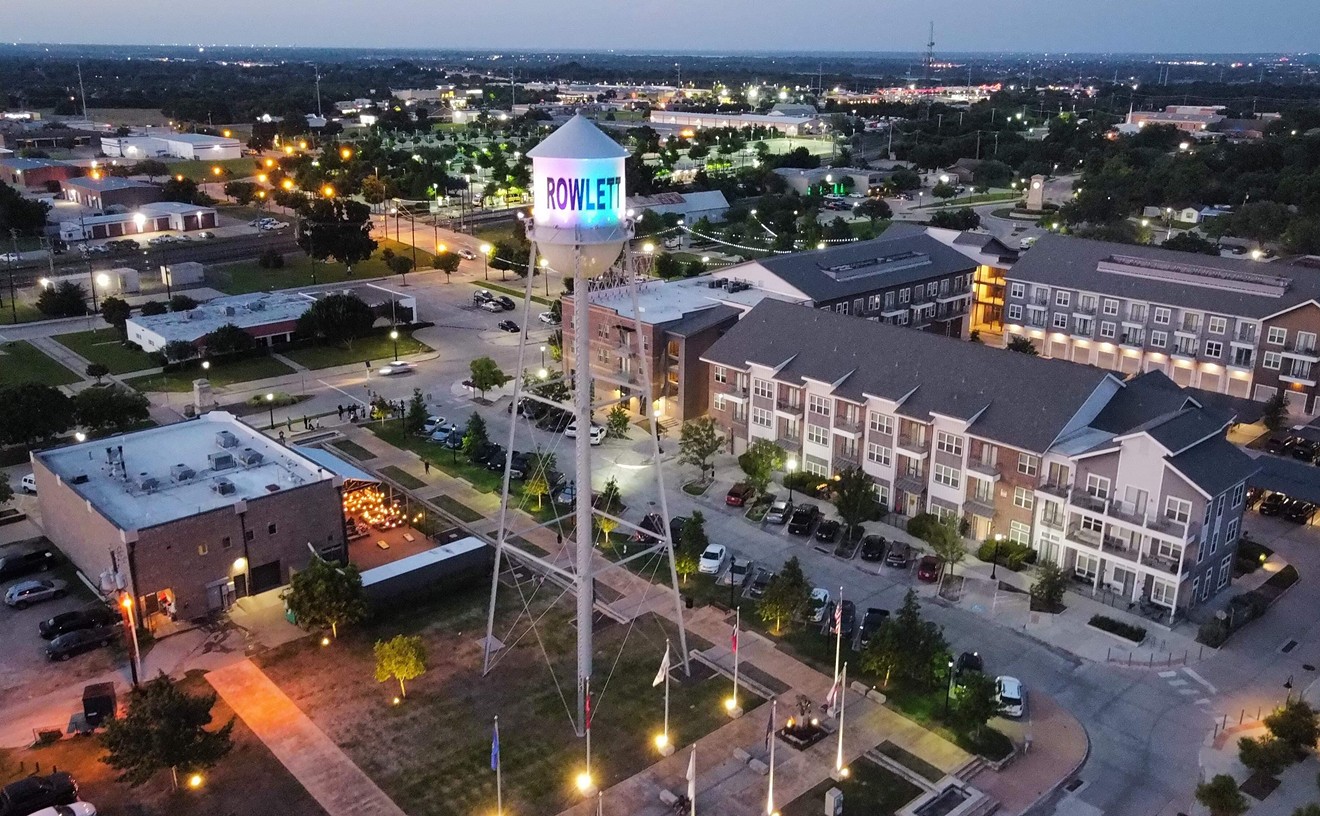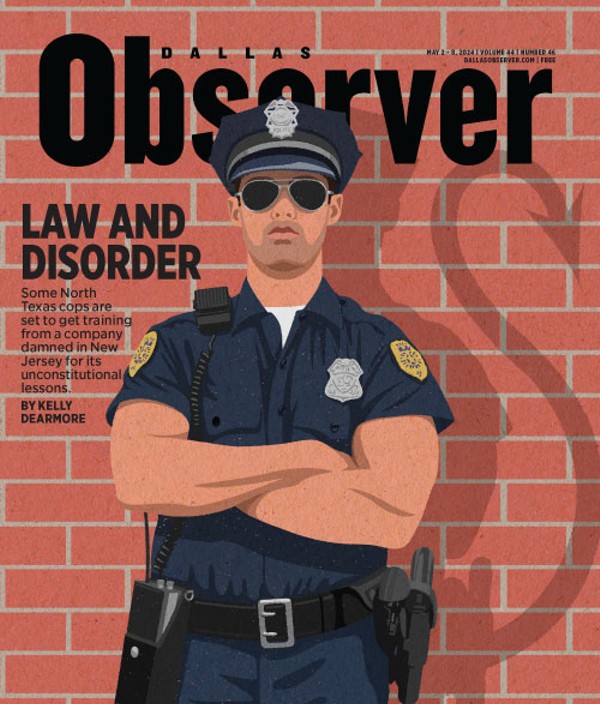What are we in for? Before we can understand the accountability wars heating up now in the Dallas school system, we have to see the battle from a statistical helicopter. First let's fly over the North and East Dallas high schools that still have significant remnant white student populations.
At W.T. White, where 11 percent of students are white, 13 percent of seniors get scores deemed "college ready" by the state on the SAT and ACT, the two big standardized college entrance exams. The state average is 25.7 percent.
At Woodrow Wilson, where 20 percent of students are white, 16.8 percent achieve college-ready scores on the SAT or ACT. At Hillcrest, where 21 percent are white, 22.8 percent of students get college-ready scores.
Now let's fly over some predominantly minority high schools. At Lincoln, where 84.5 percent of students are black, 1.1 percent get SAT or ACT scores deemed college-ready by the state. At Molina, where 91 percent of students are Latino, 2 percent win college-ready scores. At Pinkston, 70 percent of students are Latino, 30 percent black and zero percent white. Zero percent of Pinkston graduates earn college-ready scores.
If you believe that ethnicity and socioeconomic class are destiny, then we have just confirmed your worldview. We can let you off at the next helipad, or we could just push you out right now.
If, on the other hand, you think a major urban school district with a $1.8 billion budget ought to be able to find some way to get at least a decent number of poor and minority kids ready for college, then keep riding with me, and let's look at the money.
We'll helicopter on out and eyeball our close-by competition in the suburbs and then go way up high and toss in another big urban district. The Citizens Budget Review Commission, a volunteer body appointed by the school board, published a report a year ago comparing the Dallas Independent School District with a peer group made up of Garland, Houston, Mesquite, Richardson and Carrollton-Farmers Branch. It found that teacher salaries in Dallas are 8 percent higher than salaries in the peer group. Our salaries for teacher aides are 41 percent higher.
Our ratio of employees to students is higher. When the commission looked through all personnel positions, it concluded that Dallas schools pay a total premium of $110 million over what it would have to spend for the same number of employees if it paid them at the average rates in the peer group. That doesn't count the additional money we could save if we pulled back to the employee/student ratios in the peer group.
Are the pay rates higher here because we have to pay more to recruit teachers? No. The analysis shows that we pay less to recruit teachers than the peer group. We pay more for teachers in general — and for principals — because we have older staff members who have worked their ways up the pay ladder in both seniority and higher education credits. And we have more staff.
So it's not about more money. It's not about teacher qualifications. We're already ahead on all of that. And our results are hideous.
Hideous. Tell me, is it really true that the only kids this school district can prepare for college are white kids? Really? Is that outcome in any way acceptable to anybody?
Which brings us back to earth. Over the last six months, the new school superintendent, Mike Miles, and his executive team have been scouring the schools, looking in particular at principals in schools where student achievement is abysmal. They've been using a 24-page document called the "Principal Performance Rubric" to grade principals on 47 different criteria covering a gamut from management skills to instructional acumen. The process involves a lot of bean-counting but also a great deal of on-site observation and interviews.
The process isn't intended to be solely evaluative. It's also an intense and intimate exchange of information allowing district leadership to tell principals exactly what is expected of them and show them how to do it. But it's not show and tell forever. At some point the rubber must meet the road.
That point came a few weeks back for the principals whose evaluations did not show a reasonable likelihood of their being able to meet the standard any time soon. A certain number, still not known publicly, have been informed that their contracts will not be renewed at the end of the year.
Does that seem harsh? It's harsh if you are one of those principals. But you know what's even more harsh? Time. Time is brutal. Dallas takes in 14,000 kindergartners a year and spits out 8,000 high school graduates. Those dismal college readiness scores I cited above are only for the 8,000 kids who even make it to 12th grade.
There are a lot of ways to interpret that 6,000-student difference between the number of kids flowing into DISD and those getting their diplomas, but let's just call them MIAs. What do we suppose happens to those who don't make it to 12th grade every year? I think we're safe in assuming those results are even more dismal. I would bet on the side of way more dismal, as in sub-literate and unable to do arithmetic for the rest of their lives.
That's a lot of children going MIA every day. In a 180-day school year, that's a little more than 33 children per day whom we truck out to the social landfill. Wouldn't it be nice to slow that down just as fast as we possibly can?
In fact, given the wretched discrepancies by race and ethnicity in this picture, should we not expect leadership of the black and Latino communities to be out in the streets ahead of everybody else demanding whatever it takes to turn this picture around?
Latino leaders, in fact, may not be out in the streets yet, but so far they have been fairly united in supporting Miles and his reform efforts aimed at principals. Several of the targeted principals are Latino, and I am being told that Latino leadership will not oppose Miles on non-renewing them. They could change their minds, but Latino leaders so far seem to be taking a chips-fall-where-they-may approach.
But the picture is bleak in black southern Dallas, where school jobs have been an important currency of political patronage for decades. The leadership there, including some respected people with serious track records, is united in the defense of black principals no matter what their student achievement stats may be.
Last week on our news blog, I reported on a series of emails I received from the school district in response to a Public Information Act request. In those emails, a group of district employees at the mid-management level were complaining to their immediate boss that South Dallas District 9 school board trustee Bernadette Nuttall had been accosting them at school events and threatening them with retaliation from "the community" if certain black principals are non-renewed.
Also in the emails, Superintendent Miles was telling the mid-managers that he had their backs and they were to listen to him, not Nuttall. If nothing else, those of us whose careers have propelled us neither to the bottoms nor the tops of our professions must feel compassion for mid-levelers like these getting both ears tugged in opposite directions.
One of the emails is a long, very angry letter from Nuttall to Miles in which she defends herself from his accusation that she is trying to intimidate staff. But even in defending herself, she confesses to a serious infraction, one that is probably prohibited by law: She's not supposed to talk to staff at all about purely management prerogatives, especially in personnel areas where special laws for school employees expose the district to litigation.
In her letter to Miles she says, "I have requested [school effectiveness indices] of schools in District 9 and a breakdown of principals placed on growth plans. This is in no way to intimidate but to be informed about a process that should be fair, legal, consistent and absent of unethical and unfair targeting."
But the so-called "growth-plan" business is part of the paper-building process the district carries out in cases where it probably intends to sack somebody. It's way deep inside proprietary personnel practice and strategy. Handing something like that over to an elected official is just crazy. No one on the board has a right to get into that stuff, nor should they really even want to.
But here is the other piece. Nuttall has been a really good, smart board member up until this moment. She has taken tough, unpopular positions that served the interests of children, as on the closing of underutilized schools. I look at her in this and I wince, because I think she's getting tugged apart too. I tried to reach her for this column, of course, and she didn't call me back. She usually has called in the past, but I'm sure she's not happy about the blog piece on the emails.
The other board member who has been delving deep into the personnel issues around school principals is the board president, Lew Blackburn, who also represents black southern Dallas. I called him too but got no response. Like Nuttall, Blackburn has been a measured and moderate trustee for much of his long tenure.
Both Nuttall and Blackburn know better than this. They would never venture into this kind of assault on the superintendent unless they were getting overwhelming pressure from somewhere.
But pressure from whom? Not from the parents of all those black kids who get dumped out of school every year unable to read or write, so it has to be from the teachers and principals who didn't teach them to read or write.
I know. You want back in the helicopter now, don't you? No way. We're on the ground now, soldier. This is it for at least the year ahead. Dig a trench or move to Santa Fe.











